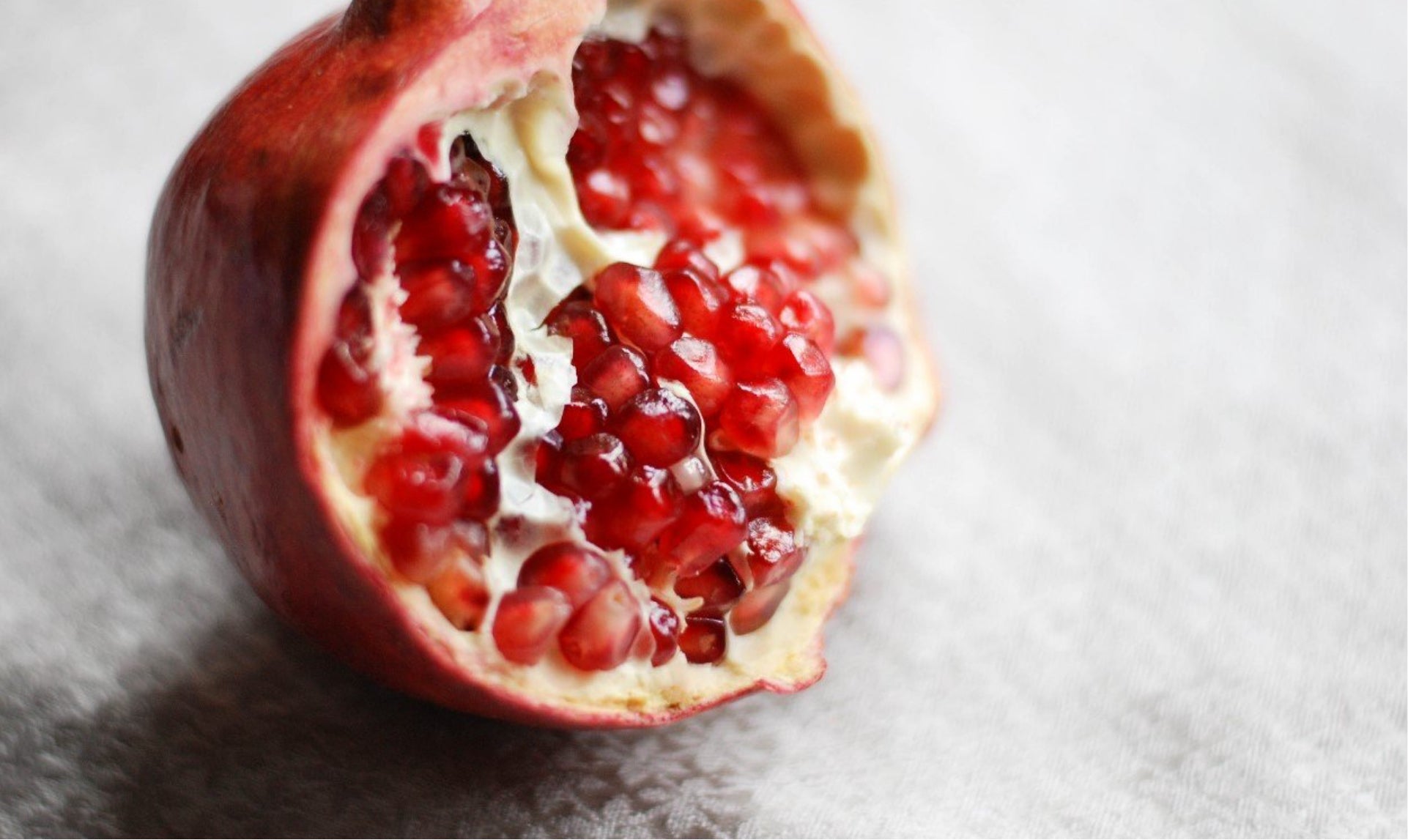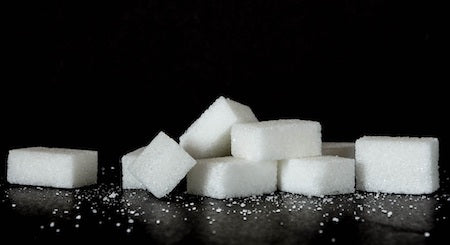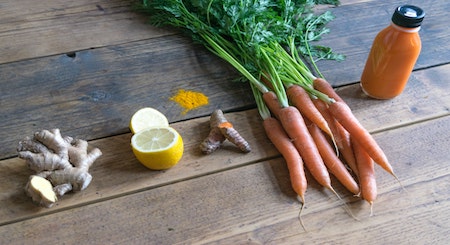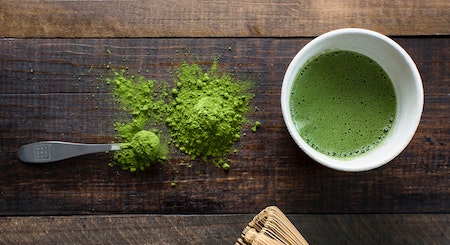
Nos actifs 31/08/2020
La grenade : sacrée championne anti-âge
Consommée depuis l’Antiquité, la grenade est réputée pour sa forte concentration en polyphénols. Ce fruit sacré prisé par les médecines traditionnelles chinoises et ayurvédiques intéresse aujourd’hui les scientifiques pour ses vertus antioxydantes et protectrices, notamment dans les maladies cardiovasculaires. Au-delà de sa saveur fraîche et acidulée, la grenade regorge de principes actifs anti-âge, qui préservent la jeunesse de la peau. Tour d’horizon d’une bombe qui vous veut du bien.
Symbolisant tantôt la vie, la fécondité, l’amour, la beauté et l’abondance, la grenade porte en elle une promesse de santé. En plus de ses vertus anti-inflammatoires, neuroprotectrices et dépuratives, la grenade s’avère être un produit naturel anti-âge d’exception.
La grenade, un élixir de jouvence
Baume réparateur et préventif du vieillissement cutané, la grenade était largement utilisée sous l’Antiquité dans la conception de crèmes, d’onguents ainsi que d’autres produits cosmétiques. Sa forte concentration en potassium et en vitamines contribue en effet à la bonne santé de la peau, alors que son acide punicique protège les cellules responsables de la production de collagène et d’élastine.
Des antioxydants à foison
La puissance de la grenade se cache dans sa haute teneur en polyphénols : tanins ellagiques et flavonoïdes. En piégeant les radicaux libres, ces antioxydants permettent de lutter contre le phénomène oxydatif de la peau responsable de son vieillissement. Renforcé par la présence de vitamine E, ce fruit permet de combattre les excès de radicaux libres préservant ainsi l’éclat et la jeunesse de la peau.
Des pouvoirs régénérants
Grâce à sa richesse en vitamines B et C, en oligoéléments et en minéraux, la grenade a la faculté de régénérer la peau. En stimulant le renouvellement cellulaire, la grenade préserve les tissus du vieillissement prématuré et retarde l’apparition des rides et ridules.
Deux molécules anti-âge d’exception
Au-delà de ses vertus antioxydantes et régénérantes, la grenade possède deux molécules anti-âges propres à ce fruit : les aquaporines et l’urolithine A.
Les aquaporines : pour une hydratation intense
Les acides gras essentiels contenus dans la grenade lui confèrent des propriétés hydratantes qui stimulent les aquaporines. Mais que sont les aquaporines et à quoi servent-elles ? Découvertes en 1992 par Peter Agre (biologiste américain), les aquaporines sont des molécules qui forment des tunnels au niveau de la paroi cellulaire, favorisant ainsi la circulation de l’eau dans l’épiderme. Si leur nombre est déficient, la peau perd de son élasticité. Les aquaporines de la grenade stimulent donc l’ouverture des canaux à eau de la peau, favorisant ainsi le flux hydrique entre les cellules. La peau est ainsi préservée de la déshydratation et des agressions extérieures.
L’urolithine A : une molécule unique
Des chercheurs de l’École Polytechnique fédérale de Lausanne (EPFL) ont découvert un phénomène inédit lié à la grenade et à ses pouvoirs anti-âge (revue Nature Medicine). Il s’agit d’une molécule contenue dans la grenade, l’urolithine A, qui serait capable de lutter contre les effets du vieillissement une fois qu’elle est transformée par les bactéries intestinales. Le fruit possède en effet des molécules appelées tanins ellagiques. Une fois le fruit ingéré, les bactéries de l’intestin transforment ces tanins ellagiques en utolithine A. Cette molécule serait la seule molécule capable de restaurer le nettoyage des mitochondries, ces petites sources d’énergie qui peuplent nos cellules, et qui perdent de leur efficacité en vieillissant. Avec l’âge, ce processus de nettoyage appelé « mitophagie » s’altère, les mitohondries dysfonctionnelles s’accumulent dans les cellules, entraînant le vieillissement de nombreux tissus comme les muscles ou la peau.
De la grenade sous toutes ses formes
Pour ses antioxydants, ses aquaporines et son rôle dans la stimulation du collagène, la grenade est la championne anti-âge à consommer sans modération et sous toutes ses formes :
- En jus frais
- En grains
- En recettes salée (salade, avec burrata, avocat …)
- En salades de fruits
- En eaux fruitées
- En compléments alimentaires


